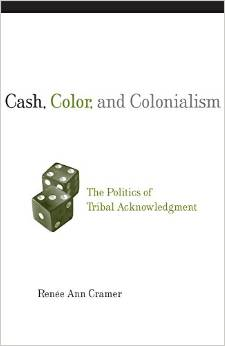Description
Within the context of U.S.-Indian law| federal acknowledgment establishes a trust relationship between an Indian tribe and the U.S. government. As a result of that trust| the tribe receives significant benefits| including tax-exempt status| reclamation rights| and–of perhaps greatest modern-day interest to the American public–the right to administer and profit from its own casinos.
Some tribes| however| have not been federally acknowledged| or| in more common language| “recognized.” In “Cash| Color| and Colonialism|” Renee Ann Cramer offers a comprehensive analysis of the federal acknowledgment process| placing it in historical| legal| and social context.
Exploring the formal and informal struggles over acknowledgment| Cramer argues that we cannot fully understand the process until we understand three contexts within which it operates: the growth of casino interests since 1988| the prevalence of racial attitudes concerning Indian identity| and the colonial legacy of U.S.-Indian law.






Reviews
There are no reviews yet.